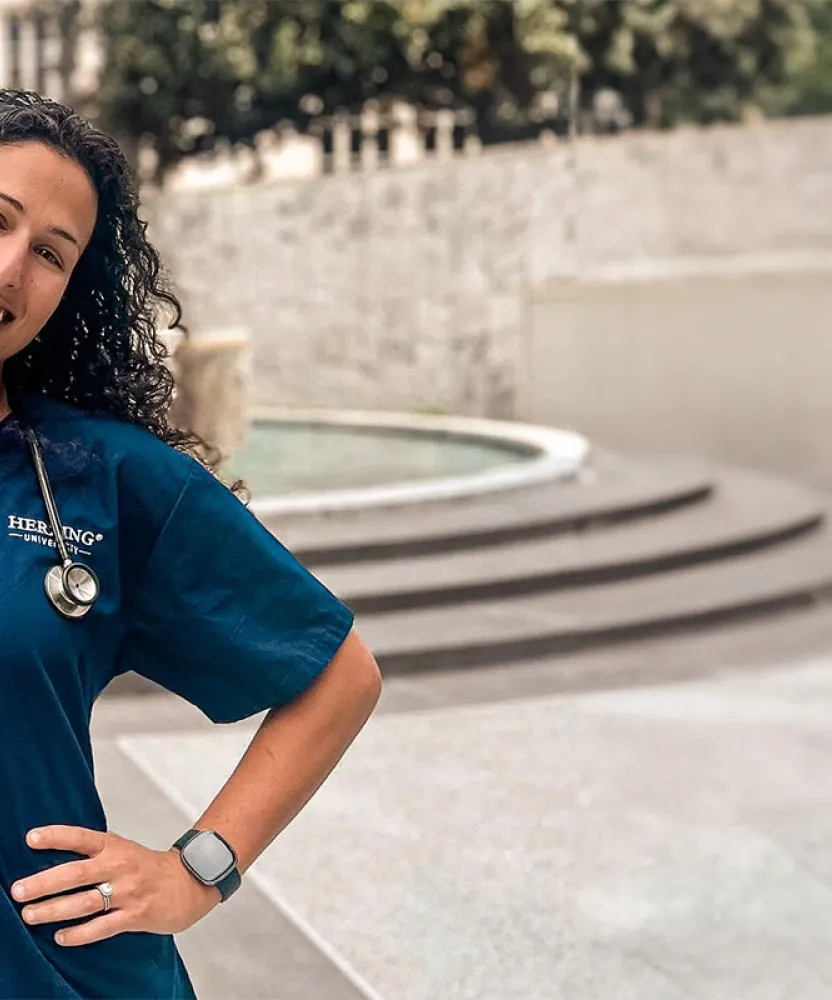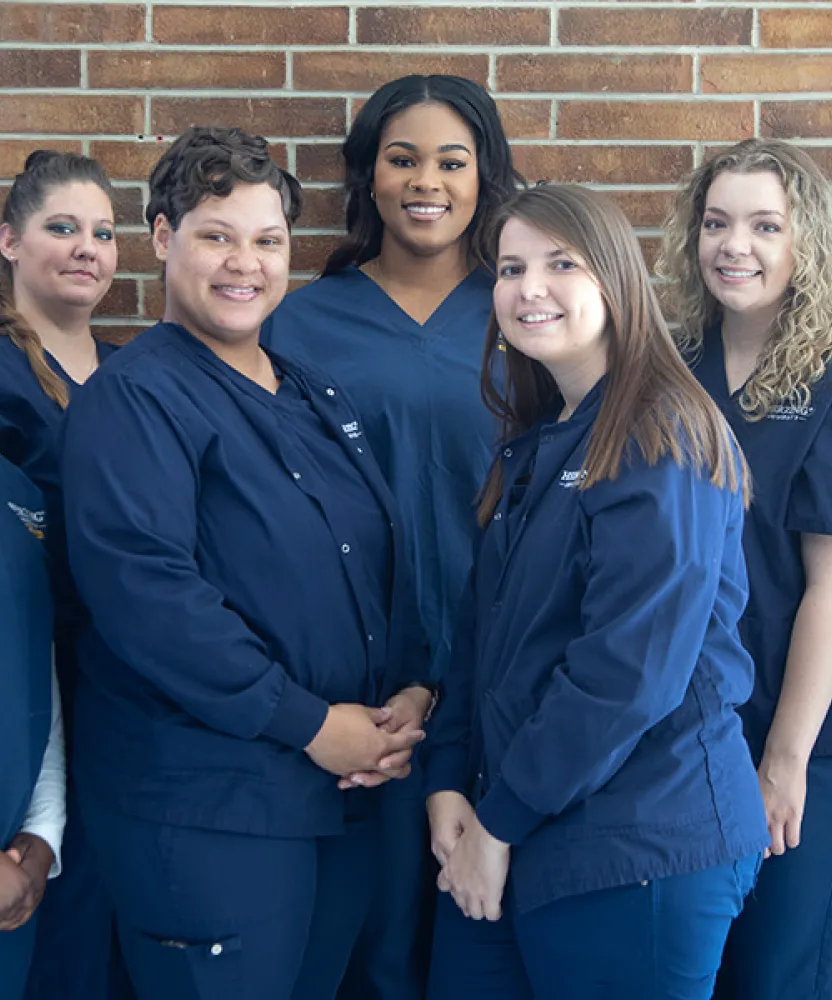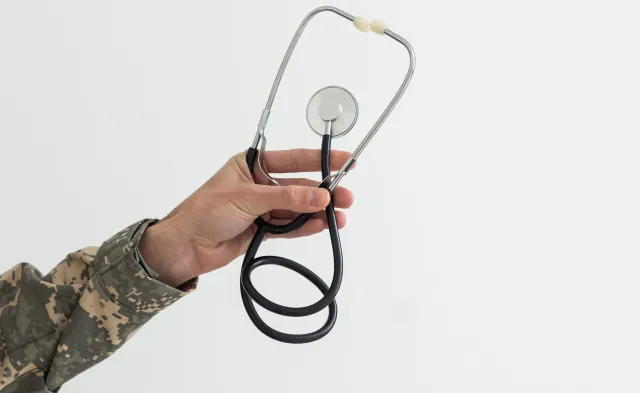Choose our online MSN Direct Entry program
| Accreditation | CCNE accredited,2 Accredited by the Higher Learning Commission |
|---|---|
| Format | 100% online didactic classes, including both on-demand and real-time learning with flexible scheduling |
| Admissions | Designed for non-nurses; non-nursing bachelor's degree required for admissions |
| Clinicals | Herzing has partnerships with select clinical sites in the state of Alabama |
| QuickPaths | Build a foundation to pursue an advanced specialty in a future post master's certificate program; transfer credit, stackable credentials, and adaptive learning technology build a faster pathway to a higher education with Herzing |
Learn More Today!
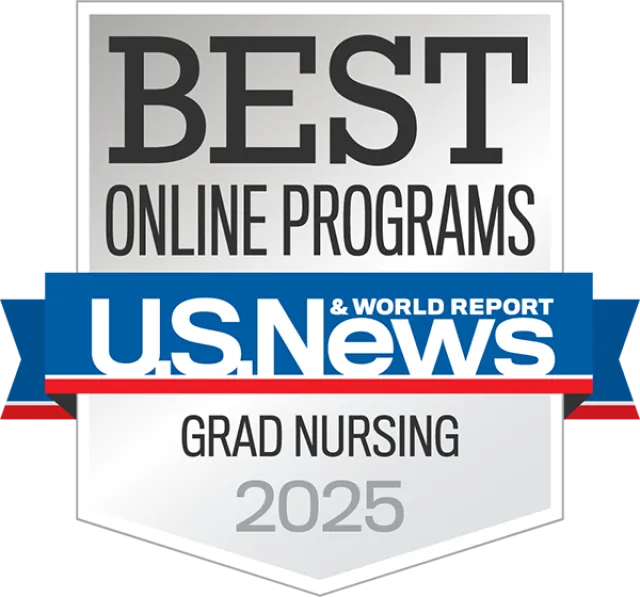
Ranked by U.S. News & World Report as one of the best online graduate nursing programs in 2025
MSN - Direct Entry Program for Alabama Residents
The Master of Science in Nursing (MSN) Direct Entry degree is a 60-77 credit graduate program which prepares non-nursing majors in Alabama for a career as an MSN-prepared Registered Nurse (RN). The degree program provides students with fundamental knowledge and skills in pathophysiology & pharmacology, scholarly practice, mental health nursing, nursing informatics and healthcare technology, population health, and much more.
Our roots in online learning
Herzing University has been providing online learning to students throughout the United States since 2003.
Every year we work to improve our processes to create strong, supportive online communities of students and faculty eager to help each other succeed in their education and work.
You can become a part of our vibrant online community—we’re thrilled to open our online MSN Direct Entry program to Alabama residents.
Direct Entry MSN Program Classes & Curriculum Details
Alabama students who meet the undergraduate general education requirements can complete the program in as little as 20 months (60 credits). For those who do not have the required undergraduate general education credits, this program is a minimum of 77 credits and can be completed in 24 months.
| Program | Months 2 | Credit |
|---|---|---|
| Master of Science in Nursing - Direct Entry | 20-24 | 60-77 |
Required Undergraduate Pre-Requisite Core Courses
All courses, 17.00 semester credit hours, are required. The following courses, or the equivalent, must be successfully completed prior to entry in the core nursing courses:
Note: Students must earn a "B" or better in both the SC 154 Anatomy and Physiology I for Nurses and SC 254 Anatomy and Physiology II for Nurses courses.
Required Courses in Nursing
All courses, 60.00 semester credit hours, are required.
Resuming students should refer to the section on re-entering for additional requirements.
Distribution of Contact Hours by Course
Distribution of Contact Hours by Course Course Number Lecture Hours Lab Hours Clinical Hours Total Contact Hours Credits MA 320 45.00 0.00 0.00 45.00 3.00 SC 154 45.00 30.00 0.00 75.00 4.00 SC 166 30.00 30.00 0.00 60.00 3.00 SC 186 30.00 30.00 0.00 60.00 3.00 SC 254 45.00 30.00 0.00 75.00 4.00 NSG 520 60.00 0.00 0.00 60.00 4.00 NSG 521 75.00 0.00 0.00 75.00 5.00 NSG 522 0.00 30.00 45.00 75.00 2.00 NSG 523 60.00 0.00 0.00 60.00 4.00 NSG 524 45.00 0.00 0.00 45.00 3.00 NSG 525 0.00 0.00 135.00 135.00 3.00 NSG 526 60.00 0.00 0.00 60.00 4.00 NSG 527 75.00 0.00 0.00 75.00 5.00 NSG 528 0.00 0.00 135.00 135.00 3.00 NSG 621 0.00 0.00 135.00 135.00 3.00 NSG 631 30.00 0.00 45.00 75.00 3.00 NSG 632 15.00 0.00 90.00 105.00 3.00 NSG 633 45.00 0.00 0.00 45.00 3.00 NSG 635 45.00 0.00 0.00 45.00 3.00 NSG 660 45.00 0.00 0.00 45.00 3.00 NU 725 45.00 0.00 0.00 45.00 3.00 NU 730 45.00 0.00 0.00 45.00 3.00 NU 780 45.00 0.00 0.00 45.00 3.00 Totals 885.00 150.00 585.00 1620.00 77.00
MSN Direct Entry Enrollment Requirements
Prerequisites to enroll in the Herzing Direct Entry MSN program include:
Prior education
Evidence of graduation from a non-nursing bachelor’s degree program awarded by an accredited institution of higher education
Minimum GPA
3.0 GPA
Entrance testing
Aggregate score of 66 on the Test of Essential Academic Skills (TEAS). No GRE required.
Students will be assessed on their collegiate cumulative GPA from either a non-nursing bachelor’s degree or master’s degree program.
The following courses, or the equivalent, must be successfully completed prior to entry in the Master of Science in Nursing - Direct Entry core nursing courses:
Statistics
3 credits
Anatomy & Physiology I
4 credits; must earn "B" or better
Anatomy & Physiology II
4 credits; must earn "B" or better
Chemistry
3 credits
Microbiology
3 credits
Alternative entry points: if your GPA is too low, or you do not hold a non-nursing bachelor’s degree, you may also consider several undergraduate nursing degree options. We offer select additional on-campus nursing programs at our Birmingham campus, as well as alternative online nursing programs for which Alabama residents are eligible—including an online BSN program
Waived Enrollment Fee
Discover the educational pathway designed to maximize your career potential. Reach for greater heights with Herzing University.
Hands-on learning: clinicals and intensives
Didactic, lecture-style coursework is completed 100% online in our MSN Direct Entry program— though the hands-on component via clinicals and intensives remain a crucial part of your nursing education.
We use a precepted model for clinical experience in our MSN Direct Entry program, and we have a dedicated team to help you find clinical placement as near to you as possible. You are never alone!
Clinicals
Herzing University partners with several institutions in Alabama as available sites for clinicals. Clinical site availability is subject to change, and we cannot guarantee your placement at any given institution prior to enrollment.
Intensives
You will attend three 2-4 day intensives at our Nashville campus. In-person skills introduction, skills checks, testing, and faculty advisement ensure you’re on track to succeed right from the start as an RN.
Job outlook for RNs in Alabama

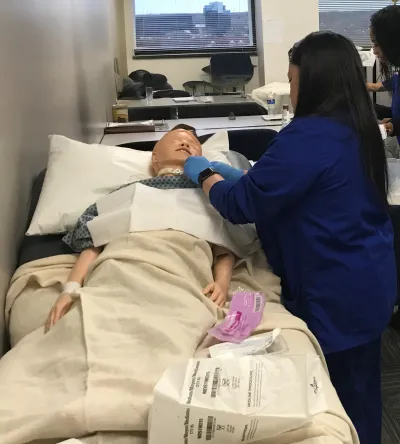

Graduate from the online MSN Direct Entry program and you’ll be prepared to sit for the National Council Licensure Examination for Registered Nurses (NCLEX-RN).
Pass the exam, meet the board of nursing requirements in Alabama, and you’ll be ready to find your first job as an MSN-prepared registered nurse.
Complete a master’s degree education in nursing and you’ll be off to a great start in your nursing career, ready to succeed in your first job and climb the ladder in the future.
RN career info
Average salary
According to the Bureau of Labor Statistics, RNs in the state of Alabama earn an average annual salary of $66,910 per year ($32.17 per hour).*
Employment outlook
Projections Central projects employment of RNs in the state of Alabama to increase 4.4% from 2022-2032, translating to an additional 2,310 jobs.**
The Student Experience at Herzing
All the courses provided by Herzing during my program were valuable in preparing me for my career. The best part was that it didn’t take me that long to complete my degree!
Jacqueline Elaine White
Nursing Student | Online CampusDisclosures
Accreditation & Disclosures
- Completion time based on transfer credit for undergraduate general education courses.
- The master's degree program in nursing at Herzing University-Madison is accredited by the Commission on Collegiate Nursing Education (http://www.ccneaccreditation.org). Herzing University is approved to offer programs in an online learning modality through association with the main campus in Madison, Wisconsin.
Herzing University is accredited by the Higher Learning Commission (hlcommission.org), an institutional accreditation agency recognized by the U.S. Department of Education.
View all Herzing University Accreditation and Approvals
* Bureau of Labor Statistics (BLS), U.S. Department of Labor, Occupational Employment and Wage Statistics 2023 / Occupational Outlook Handbook 2022. BLS estimates do not represent entry-level wages and/or salaries. Multiple factors, including prior experience, age, geography market in which you want to work and degree field, will affect career outcomes and earnings. Herzing neither represents that its graduates will earn the average salaries calculated by BLS for a particular job nor guarantees that graduation from its program will result in a job, promotion, salary increase or other career growth.
** Projections Central, Long-Term Projections (2022-2032). Multiple factors, including prior experience, age, geography market in which you want to work, and degree field will affect career outcomes. Herzing does not guarantee that graduation from its program will result in a job, promotion, or other career growth.
Recent Blog Posts
What programs are available on-campus in Birmingham?
Our Birmingham campus offers other degree and diploma-level programs, including a practical nursing diploma program and an associate degree in nursing program (ASN). Current LPNs may also be eligible to enroll in our LPN to ASN bridge option.
None of these programs are available online and must be completed on-campus at our Birmingham campus, located at 280 W Valley Ave, Birmingham, AL 35209.
Waived Enrollment Fee
Discover the educational pathway designed to maximize your career potential. Reach for greater heights with Herzing University.

